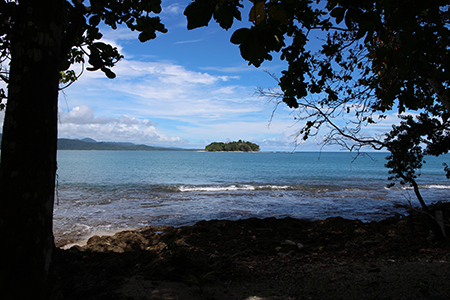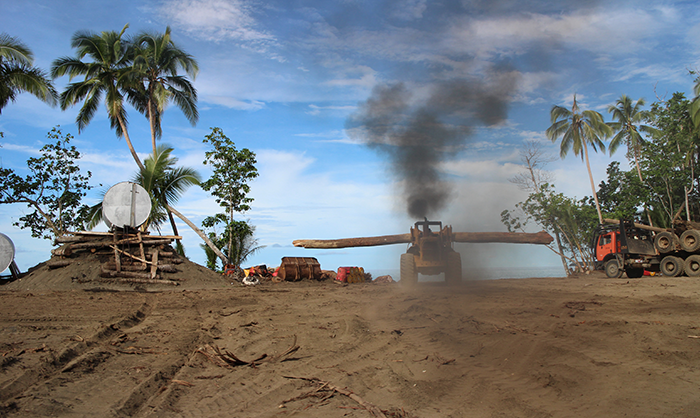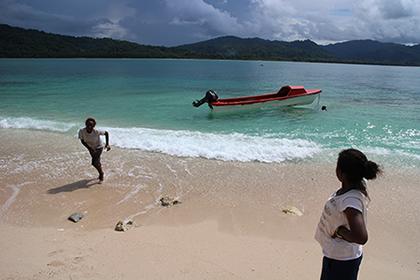ABM Archive Website
THIS WEBSITE CONTAINS ARCHIVE MATERIALS FOR HISTORICAL REFERENCE ONLY
For up-to-date information, including our latest appeals, news, and resources, please visit our current website.
A Theological Reflection on Climate Change
Brother Christopher John, an Anglican Franciscan friar in the Society of St Francis, recently wrote a reflection for ABM on the issue of Climate Justice. The proliferation of news articles and scientific reports centring on Climate Change has many people talking about cause and effect, blame and responsibility. This thought-provoking reflection considers these issues from another angle, highlighting the theological significance of our role in caring for creation.
“Why should creation be a concern of mission? Some voices might regard it as not relevant to the work of a body such as ABM. Sure, the Fifth Mark of Mission challenges us “to strive to safeguard the integrity of creation, and sustain and renew the life of the earth.” Yet… what does this have to do with the good news of Jesus Christ? Some voices might claim that this is purely a secular concern.
There are a number of arguments against such a view. If we see God’s work as present in all creation, and recognise that humankind is placed in this world to nurture all that God has given us,
 |
| Pamua Island, San Cristobel. © Jess Melas/ABM, 2015 |
then it is our duty to live in a right relationship with creation. When we do so, then we are making God’s love known. Francis of Assisi could see signs of God’s loving presence in the world around him. Sun, moon and stars, water and fire, and the fruits of the earth—they were his sisters and brothers and valued not only for what they gave him, but for how they were signs of God’s presence and glory. The theologians who developed further his intuitive insight spoke of seeing God’s footprints in all of creation. God is revealed not only in holy scripture and in Jesus Christ, God made flesh, but also in the “book” of creation. Humankind is part of this complex web of relationship and in caring for creation we are sharing in God’s work.
Another insight from the early Franciscans was that the variety in creation was not just accident. Each single blade of grass, in its uniqueness, is not an imperfect image of an “ideal” blade of grass. Rather, the uniqueness of each element in creation speaks directly of God’s loving presence. And each species, by being what God has made it to be, in its infinite variety, glorifies God precisely by its existence. When it suffers, when it is diminished, when it is abused by humankind—then God’s glory is likewise diminished.
More recently we’ve seen that there is also an element of justice in our relationship with the world God has given us to live in. Justice here means much more than simply deciding between right and wrong. It touches on living in such a way that God’s righteousness is seen and proclaimed in all our relationships.
 |
| Heavy logging activities on San Cristobel, Solomon Islands. © Jess Melas/ABM, 2015 |
Rising sea levels, deforestation, increasing pollution and decreasing flow in our rivers, dumping of our waste material, and so on, these are not just concerns of aesthetics or health or agriculture, but are fundamentally related to justice. Much pollution is caused by developed or developing nations. But the effects are often most directly felt by those who lack the resources to manage the damage to their fisheries or farms or forests. How can we face the God who asks of us that we live righteously when we participate in that which deprives others of their livelihood or food or the very substance of their being?
One example of such injustice is seen in the nation of Kiribati—a collection of atolls and coral reefs, mostly no more than 2 metres above sea level, and home to 110,000 people. Rising sea levels and increased storms do more than just reduce the available land. Salt water contaminates ground water; damaged reefs no longer block storms as previously; fragile coastal areas become yet more eroded; and food supplies are compromised. Their very existence as a nation is under threat.
 |
| A Partner visit to Pamua Island. © Jess Melas/ABM, 2015 |
ABM’s partnerships invite us to do more than just support others by sharing of our abundance. These partnerships challenge us to know more about our partners, not as “others”, but as fellow stewards of creation, to learn from their wisdom as stewards, and to ask ourselves the difficult questions of how we “do justice” and live in the world God has given us, so that God may be glorified.
And when we live in right relationship with creation, seeing the beauty and relationships that God’s word has called into being, we also give glory to the same Word of God, known in Jesus Christ.”
Many ABM supporters will know Brother Christopher John SSF, a familiar name and face in Anglican circles. He is originally from New Zealand, and has spent a number of years in South Korea. He is now based at Stroud, NSW, and currently serves as Minister Provincial. He recently completed a PhD in Peace and Conflict Studies from the University of Otago, Dunedin, New Zealand.


